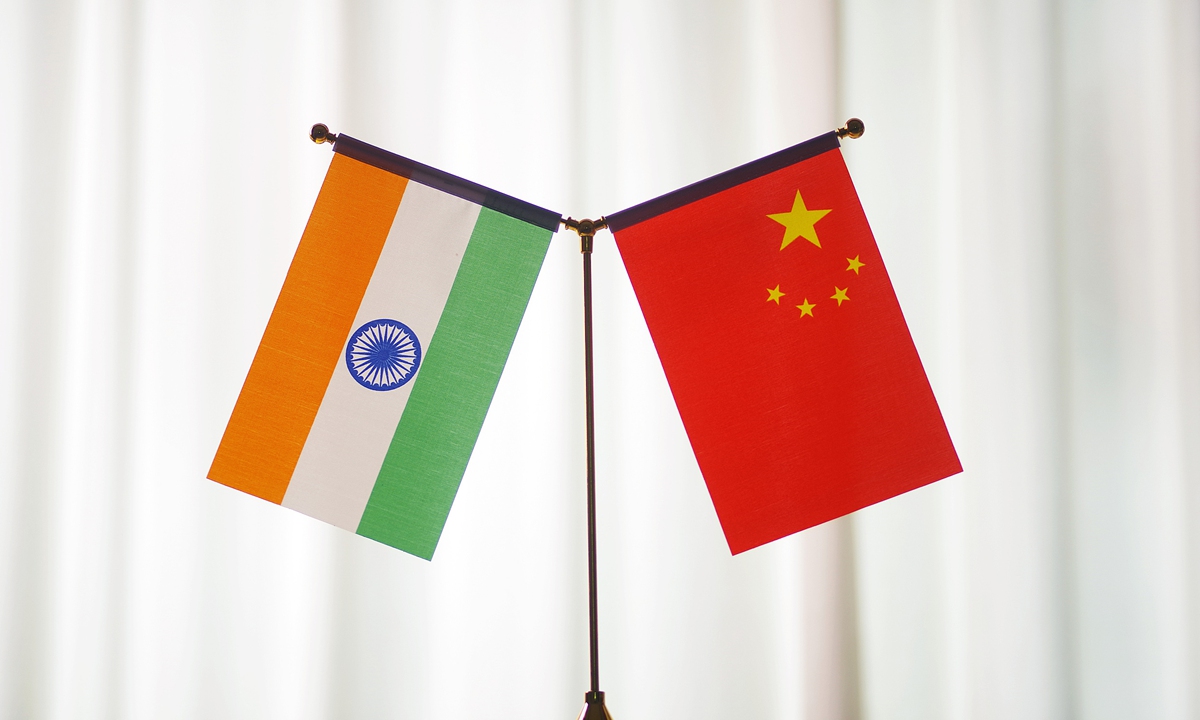India, US-led Malabar naval drill a hollow bluff: expert
By Wang Qi Source: Global Times Published: 2020/11/3 20:18:40

China India Photo:VCG
This year's annual Malabar naval exercises kicked off on Tuesday at a sensitive time of a nearly six-month China-India border standoff and the US presidential election.
Despite the drill jointly participated by India, the US, Australia and Japan, experts noted that such an ill-intentioned attempt to corner China is a hollow bluff, and China will not be disrupted by India's irrationality or US interference.
Hosted by the Indian Navy, the Malabar exercises date back to 1992. With the participation of QUAD countries - Japan, India, Australia and the US - this year's drill focuses on "curbing China's presence in the Indo-Pacific," Indian media said.
Indian media reported that the US Navy guided-missile destroyer USS John S McCain, Australian Navylong-range frigate HMAS Ballarat, and Japan Maritime Self Defense Ship (JMSDF) destroyer JS Onami are participating along with Indian warships.
Some Indian experts believe that the Malabar drill 2020 "looks mundane," judging by the assets to be displayed by the four nations, as the previous one was more sophisticated and focused on anti-submarine warfare.
Hu Zhiyong, a research fellow at the Institute of International Relations of the Shanghai Academy of Social Sciences, told the Global Times that Australia's participation makes this year's Malabar exercises bigger than last year's, but China will not be intimidated by an ordinary annual military exercise.
The military capacity gap between China and India is huge, and it's not difficult for a Japanese leader to tell China is a better trade partner and bigger market, Hu said.
Yoshihide Suga, Japan's new prime minister, said in September that he hopes to establish stable relations with neighboring countries like China.
The fact that India invited Australia means India chose to fall out with China, as Australia had a bad record in cooperating with the US to smear and attack China repeatedly on issues such as Huawei, Hong Kong and the COVID-19 epidemic. Some Australian scholars said China-Australia relations are at their lowest point since the establishment of diplomatic ties in 1972.
Facing a catastrophic epidemic and economy, the Modi government's muscle-flexing drill targeting China suggested India is seeking to show a proactive position and a tough stance ahead of the 8th round of commander-level talks.
But it is very unwise and irrational for the Modi government to hold the naval drill that includes all QUAD countries, said Hu, adding that Mike Pompeo's recent anti-China tour to Asian countries also showed that the US' Indo-Pacific strategy is unpopular.
Some Indians ignore China's development prospects (and India's interests in it) and also the future of China-India relations, Hu said. "That's India's loss."
Wang Wenbin, a spokesperson of the Chinese Foreign Ministry, said at Tuesday's press briefing that China hopes the military drills will be conducive to regional peace and stability, rather than the opposite.